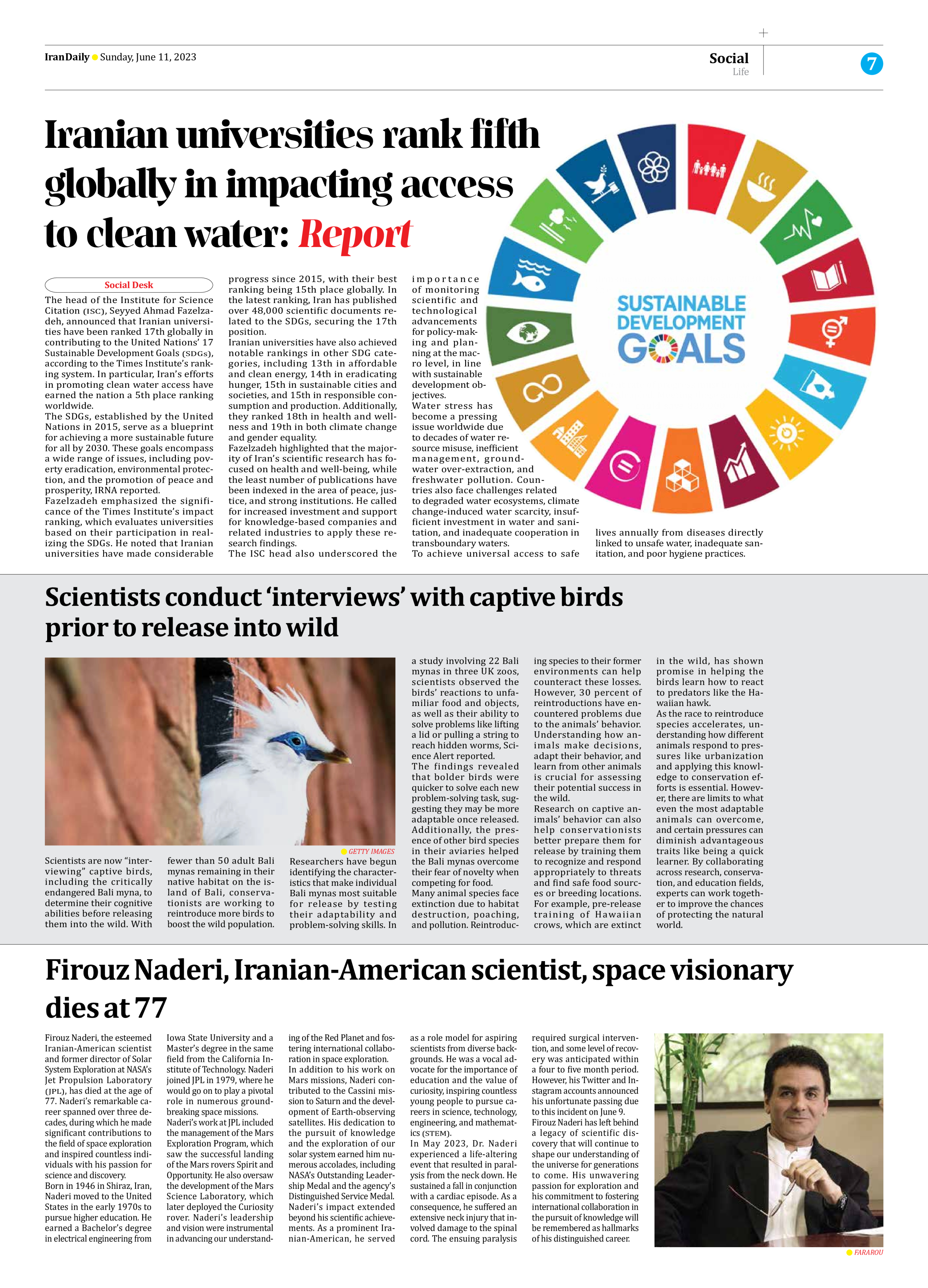
Iranian universities rank fifth globally in impacting access to clean water: Report
The head of the Institute for Science Citation (ISC), Seyyed Ahmad Fazelzadeh, announced that Iranian universities have been ranked 17th globally in contributing to the United Nations’ 17 Sustainable Development Goals (SDGs), according to the Times Institute’s ranking system. In particular, Iran’s efforts in promoting clean water access have earned the nation a 5th place ranking
worldwide.
The SDGs, established by the United Nations in 2015, serve as a blueprint for achieving a more sustainable future for all by 2030. These goals encompass a wide range of issues, including poverty eradication, environmental protection, and the promotion of peace and prosperity, IRNA reported.
Fazelzadeh emphasized the significance of the Times Institute’s impact ranking, which evaluates universities based on their participation in realizing the SDGs. He noted that Iranian universities have made considerable progress since 2015, with their best ranking being 15th place globally. In the latest ranking, Iran has published over 48,000 scientific documents related to the SDGs, securing the 17th position.
Iranian universities have also achieved notable rankings in other SDG categories, including 13th in affordable and clean energy, 14th in eradicating hunger, 15th in sustainable cities and societies, and 15th in responsible consumption and production. Additionally, they ranked 18th in health and wellness and 19th in both climate change and gender equality.
Fazelzadeh highlighted that the majority of Iran’s scientific research has focused on health and well-being, while the least number of publications have been indexed in the area of peace, justice, and strong institutions. He called for increased investment and support for knowledge-based companies and related industries to apply these research findings.
The ISC head also underscored the importance of monitoring scientific and technological advancements for policy-making and planning at the macro level, in line with sustainable development objectives.
Water stress has become a pressing issue worldwide due to decades of water resource misuse, inefficient management, groundwater over-extraction, and freshwater pollution. Countries also face challenges related to degraded water ecosystems, climate change-induced water scarcity, insufficient investment in water and sanitation, and inadequate cooperation in transboundary waters.
To achieve universal access to safe drinking water and sanitation by 2030, the current rate of progress must be quadrupled. Meeting these goals could save 829,000 lives annually from diseases directly linked to unsafe water, inadequate sanitation, and poor hygiene practices.







